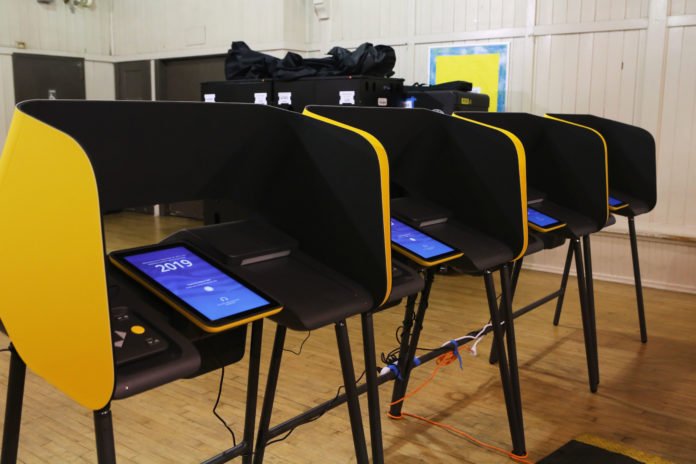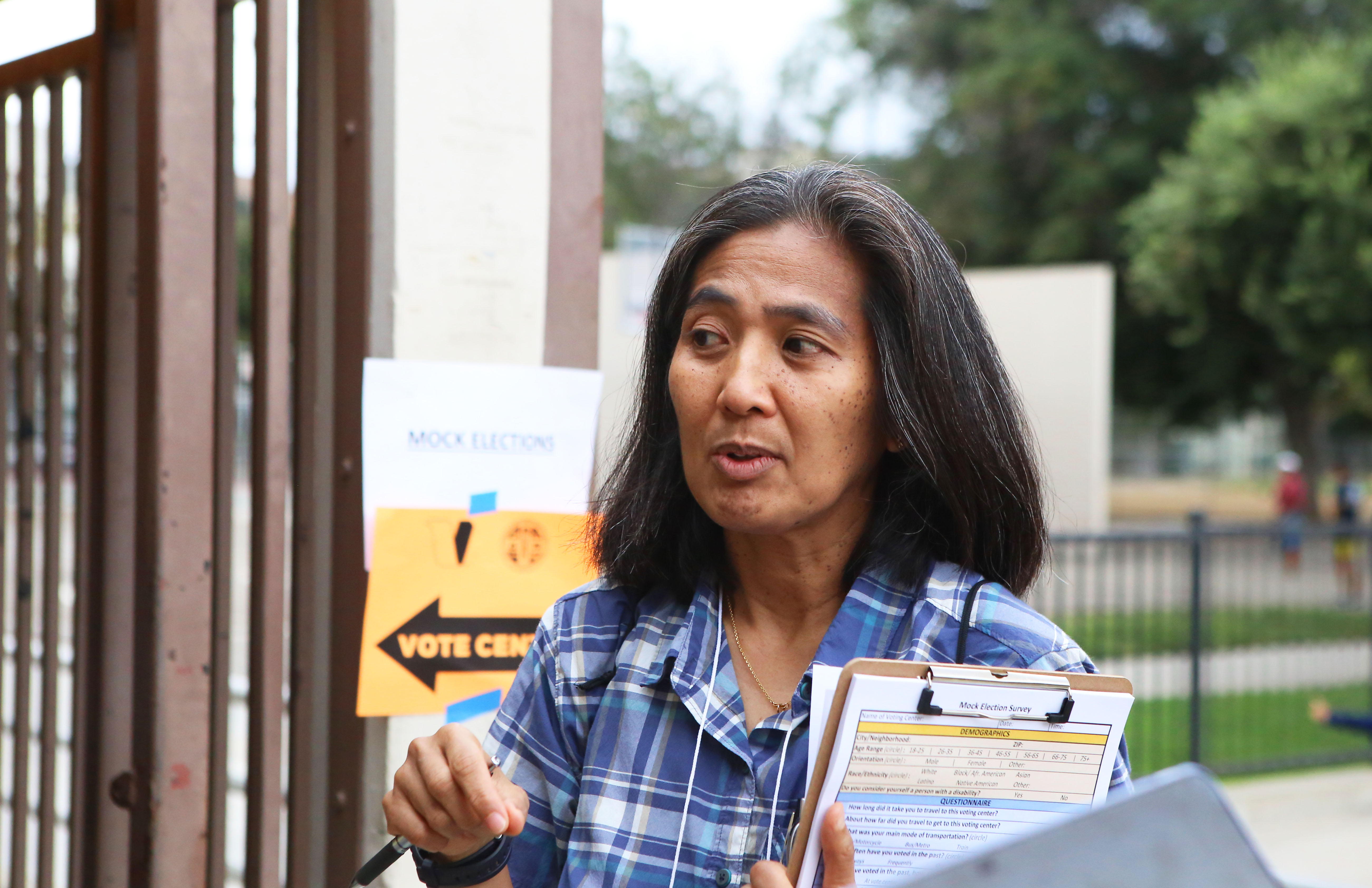
Los Angeles County hosted a mock election to debut a new voting system, Voting Solutions for All People (VSAP), during a two-day event Sept. 28–29. Developed and owned by LA County, VSAP will be used for the first time in March 2020 for the presidential primary election. At the mock election event, voters were ushered in by real election clerks, who checked in voters and directed them to voting stations. Instead of deciding which city councilor or president to vote for, voters were asked questions such as “What is the best LA sports team?” and “If you could choose any day of the week to vote, what day would it be?” At Yosemite Community Center in Eagle Rock, one of 50 voting sites where mock elections took place, solo voters and families with children trickled in and out — the event was open to everyone, regardless of age.
According to the VSAP website, the system’s planning process began in 2009 to increase voter participation and center the needs of LA County’s diverse voting population.
Under VSAP, there is a new, electronic ballot-marking device, an adjustable touch screen and audio headset. The system also offers ballots in 13 languages. After the voter marks their choices, the ballot is printed and the voter can look over it before it is submitted. There is also the option of an interactive sample ballot, where voters can mark their ballots at home. The system creates a QR code which voters scan in the booth to transfer their choices to the machine. Another feature of VSAP is the “Electronic Pollbook,” where voter registration information is updated in real-time and allows people to vote at one of the 1,000 voting centers in the county instead of being tied to the voting center closest to their home. Under VSAP, in-person voting for all elections will be extended to 11 days before what is nationally considered as election day, the first Tuesday of November.

Occidental Urban & Environmental Policy professor Heng Lam Foong and some of her public health practicum students attended the mock election, along with Lou Marie Reyes, a community legal advocate for Advancing Justice-LA, the Los Angeles chapter of Asian Americans Advancing Justice.The group surveyed voters about their experience with the new system. Their survey measured the system’s accessibility, especially for people who live with disabilities or speak a language other than English.
According to Reyes, who is bilingual and has previous volunteer experience at an LA polling center, the VSAP will benefit limited English proficient (LEP) voters.
“Poll workers often don’t speak LEP voters’ language, so these voters won’t have to wait so long for language access,” Reyes said. “In terms of the translation, I am actually really impressed with it.”
Foong said VSAP could minimize situations that could make voters less likely to participate in elections.
“If you have to leave early to drop off your child and go to work, you might not stop by your polling place,” Foong said. “Hopefully, [VSAP] presents a reason to not find an excuse not to go.”

Despite its accessibility improvements, Reyes anticipates some potential drawbacks of the VSAP system.
“Especially right now, with all the data breaches and cyberattacks — is that something that could happen, even though there’s no WiFi connected?” Reyes said.
Although voter Hugo Albuja said he would not be deterred from in-person voting by the electronic system, he had some concerns about the electronic aspect.
“I know it’s computerized, so hopefully all the information goes where it’s supposed to, and it’s not tampered with,” Albuja said.
Connie Wong, a voter who works with people with disabilities, brought up another potential issue with the new system.
“There are some folks who have their hands stuck in a position where they can’t extend it, or they can’t even do a knuckle, so the ballot marking device might be more of a challenge for them,” Wong said.
Despite having some questions, Albuja spoke about the importance of the mock election event. Albuja believes this event will allow for any mistakes with VSAP to be identified and corrected so the system will run smoothly for future elections.
Occidental student Maryam Ali (junior), who was helping with the survey, agreed that the mock election was a valuable event.
“It helps raise some form of awareness,” Ali said. “I think someone would be more likely to attend this event and then go back into their community and tell their neighbors to come and try out the election or tell them how the new system of voting works.”
While there are still questions about whether the system will work as it’s supposed to and accomplish its goals of increasing voter participation, Wong says the voting system has stayed stagnant for too long.
“It’s always good to have change, especially when the changes could be more accessible,” Wong said.
![]()






























